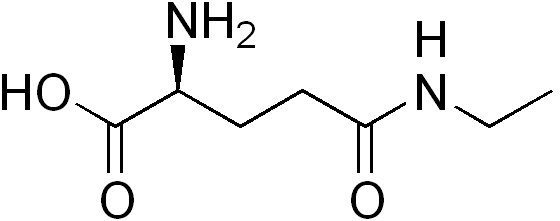
The benefits of L-theanine in tea
What is it in tea that wakes us up, yet calms us down at the same time? Have you considered how special is that effect of tea?

Is it just the right amount of caffeine in tea that gives us that finely calibrated lift? Generally tea has less caffeine than coffee. However, the double-barreled effect of tea - perkiness and soothing - appears to be the result of yet another wonder compound in tea, scientists have found.
The discovery is actually not recent. Called L-theanine, it is one of the 18 amino acids present in tea, and was first found by Japanese scientists way back in 1949 while researching green tea. L-theanine is found in tea and only a few other plants. Notably, amino acids make up around 6% wt/wt of the extract solids of tea.

Electroencephalograph (EEG) studies have shown that L-theanine has a direct effect on the human brain. It significantly increases activity in the alpha frequency band which indicates that it relaxes the mind without inducing drowsiness. Thus the scientists believe L-theanine has a significant effect on the general state of mental alertness and arousal.
So even as caffeine delivers its punch, L-theanine cushions it by relaxing and calming the mind. A perfect balance or ying-yang. No wonder tea has always been the favorite brew of meditating monks in the East!

There is a notion that L-theanine is present only in green teas, but that is not accurate. Both black and green tea have been found to contain the compound. However, the L-theanine content varies dramatically from tea to tea. It is most found in green tea that is shade grown in Japan - matcha and gyokuro being the most prominent ones.
Further, it must be noted there are also scientists out there arguing that the content of L-theanine in your daily cup is not enough to give you that divine arousal. They say you need to drink gallons of tea before your alpha frequency starts buzzing.

Alas, writing about the health benefits of tea scientifically can be challenging. Firstly, yours truly truly lacks scientific expertise, and secondly the studies themselves appear lacking in a consensus. Apparently more time and studies are required before conclusive statements can be made. But this much can be said for now, tea has been around for at least 5000 years. And, in every era tea has been associated with comfort, company, wisdom, art and health, right up until today. The collective wisdom of the ages ought to amount for something!

